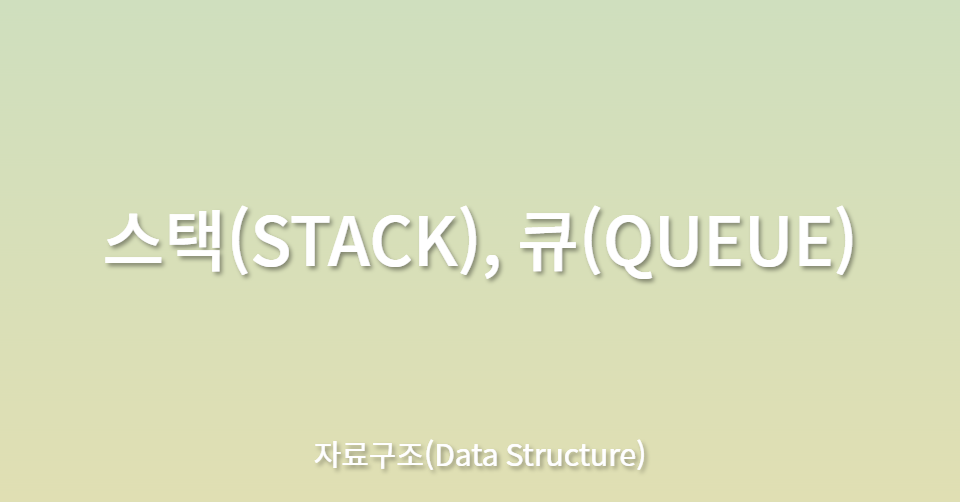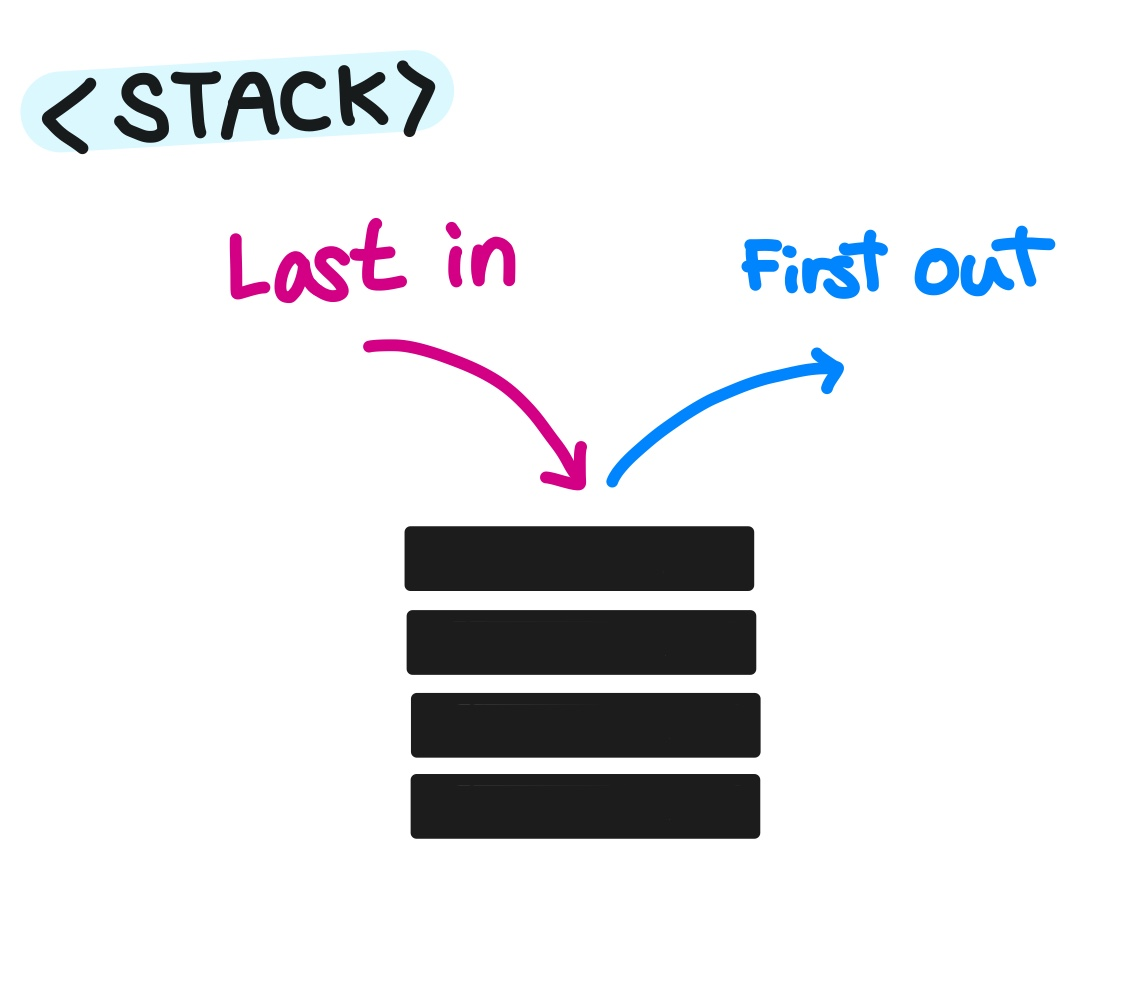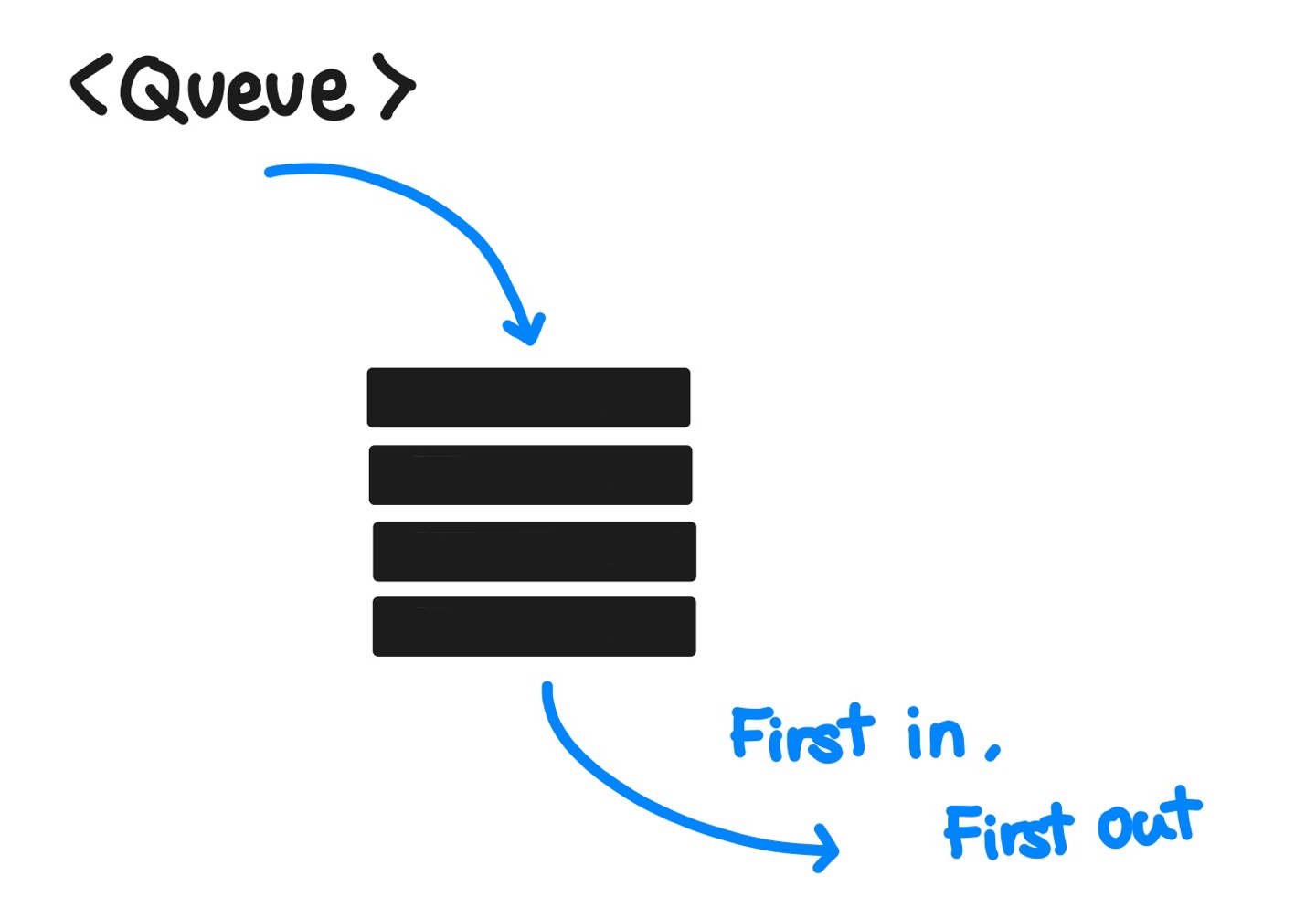
➕ STACK
LIFO (Last Input First Out)

-
마지막에 넣은 원소가 먼저 나온다는 것이다.
-
아래가 막혀있고 위가 뚫린 형태로써, 차곡차곡 쌓는 구조이다.
-
스택에서 삽입은 PUSH, 삭제는 POP 이라는 용어로 사용한다.
-
DFS 탐색시 사용
ex) 문서 작업에서 컨트롤 + Z 와 같은 이전 상태로 되돌리기 등처럼 캐시와 같은 모습으로 많이 존재한다.
😨 stack overflow?
- stack이란 것을 배우기도 전부터 많이접해보았을 것이다.
- 말 그대로, 위와 같이 정해진 크기에 무언가를 계속 넣고 있다가 받아들일 수 있는 크기를 초과해서 흘러넘쳐버린 것을 말한다.
코드(연결리스트 이용, c로 구현)
#include <stdio.h> #include <stdlib.h> #include <string.h> typedef struct Node { char* data; struct Node* prev; struct Node* next; } Node; typedef struct LinkedListStack { Node* top; int size; } LinkedListStack; LinkedListStack* init() { LinkedListStack* stack; stack = (LinkedListStack*)malloc(sizeof(LinkedListStack)); stack->top = NULL; stack->size = 0; return stack; } Node* NodeInit(char* str) { Node* newNode = (Node*)malloc(sizeof(Node)); newNode->data = (char*)malloc(strlen(str)+1); strcpy(newNode->data, str); newNode->next = NULL; newNode->prev = NULL; return newNode; } void push(LinkedListStack* list, char* str) { Node* newNode = NodeInit(str); Node* oldTop; if(list->top == NULL) { list->top = newNode; } else { oldTop = list->top; oldTop->next = newNode; newNode->prev = oldTop; list->top = newNode; } list->size++; } void pop(LinkedListStack* list) { Node* currentTop = list->top; Node* newTop; if(currentTop == NULL) return; else { newTop = list->top->prev; newTop->next = NULL; list->top = newTop; } list->size--; free(currentTop->data); free(currentTop); } Node* Top(LinkedListStack* list) { return list->top; }
➕ Queue
FIFO (First Input First Out)

- 가장 현생활에서 많이 쓰이는 구조이다.
- 먼저 줄 선 사람이 먼저 계산을 하는 것이다.
- 큐에서 삽입은 EnQueue, 삭제는 DeQueue 이라는 용어로 사용한다.
- BFS 탐색에서 사용
👉 코드 (연결리스트 이용 , c 로 구현)
#include<stdio.h> #include<stdlib.h> typedef char element; typedef struct QNode { element data; QNode* link; }QNode; typedef struct LinkedQueue { QNode* front; QNode* rear; }LinkedQueue; LinkedQueue* createLinkedQueue() { LinkedQueue* LQ = (LinkedQueue*)malloc(sizeof(LinkedQueue)); LQ->front = NULL; LQ->rear = NULL; return LQ; } int isEmpty(LinkedQueue* LQ) { if (LQ->front == NULL) return 1; else return 0; } void enQueue(LinkedQueue* LQ, element item) { QNode* new = (QNode*)malloc(sizeof(QNode)); new->data = item; new->link = NULL; if (LQ->front == NULL) { LQ->front = new; LQ->rear = new; } else { LQ->rear->link = new; LQ->rear = new; } } element deQueue(LinkedQueue* LQ) { if (isEmpty(LQ)) exit(1); else { QNode* old = LQ->front; element item = LQ->front->data; LQ->front = LQ->front->link; if (isEmpty(LQ)) LQ->rear = NULL; free(old); return item; } }
